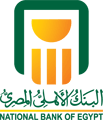Minister of Communications and Information Technology Amr Talaat witnessed the signing of a protocol between the ministry and the Decent Life Foundation to implement the Digital Decent Life Initiative on Monday.
The initiative comes within the framework of the Decent Life Presidential Initiative, which aims to develop Egypt’s rural villages.
The protocol aims to eradicate the digital illiteracy of the people of the targeted villages and develop their digital capabilities to achieve digital economic empowerment and transform the community of the targeted villages into a safe and productive interactive digital society.
Talaat stressed that building the digital capabilities of citizens is one of the most important axes of Egypt’s digital strategy, which is based on the vision of the ministry that building people is the mainstay of development.
The duration of the work of this protocol is three years, and the scope of its work includes all targeted families of all categories in the villages of the presidential initiative and families in rural communities, including female breadwinners, housewives, students and graduates, youths able to work, and people of determination. It also targets craftsmen, small and micro enterprises, knowledge pioneers, and volunteers.
The protocol aims to raise the level of knowledge of families in poor villages and keep pace with technological development in a way that enhances digital inclusion through digital literacy and work to spread digital culture, raise digital awareness, and raise the efficiency of digital skills, which contributes to raising the level of education for school and university students through the development of computer skills, the safe use of IT, and the availability and dissemination of an e-learning culture.
It also aims to maximise the capabilities of families to carry out productive work that contributes to achieving a decent life for them through digital economic empowerment, support, and development of capabilities and skills using information and communication technology to catch up with the labour market, work on freelance platforms and transformational training, and refine e-marketing skills for all groups.
The protocol’s projects include working to achieve financial and digital inclusion through the implementation of a number of awareness seminars in several areas related to the role of women and girls as knowledge leaders, the role of IT and digital transformation and its applications, and spreading societal awareness of safe internet and electronic payment.
This is as well as implementing a project to upgrade digital capabilities using information and communication technology tools and applications in order to support skills to achieve economic empowerment through accredited training courses in the areas of using computer programmes, online security and safety, e-marketing, and self-employment platforms.
The protocol also includes the implementation of projects to raise the efficiency of learning by training students across various stages, raising their digital efficiency, as well as qualifying young people with contemporary technological skills that meet the needs of the free labour market — from those with technical, medium, and above-average qualifications, and those with higher qualifications — as well as training cadres of trainers from various partners based on the principles of IT and digital skills, in addition to increasing women’s digital awareness and adopting new practical methods that can help and enhance learning processes for target groups.
For her part, Ghada Labib — Deputy Minister of Communications and Information Technology for Institutional Development — expressed her happiness to cooperate with the Decent Life Foundation in implementing capacity building and digital literacy as part of the efforts of the ministry in the presidential initiative to bridge the digital divide between rural and urban communities through the dissemination of digital culture, building digital skills, and digital economic empowerment.
Aya Omar Al-Kamary — Chairperson of the Board of Trustees of the Decent Life Foundation — praised the fruitful cooperation between the ministry and the foundation over the course of a year, which will contribute to supporting the construction of a digital Egypt.
She also pointed out the importance of the protocol in implementing projects for the development of the Egyptian person and changing the mental image within the targeted villages.
It is worth mentioning that the participation of the communications ministry in the national project for the development of Egyptian villages includes several axes that aim to raise the efficiency of the information infrastructure of the villages by linking these villages with fibre-optic cables to raise the efficiency of the internet for 1m homes as well as developing post offices and improving communication services through the establishment of new towers for mobile networks in these villages, in addition to digital literacy and economic empowerment through digital literacy programmes and the development and building of digital capabilities of citizens in villages.




